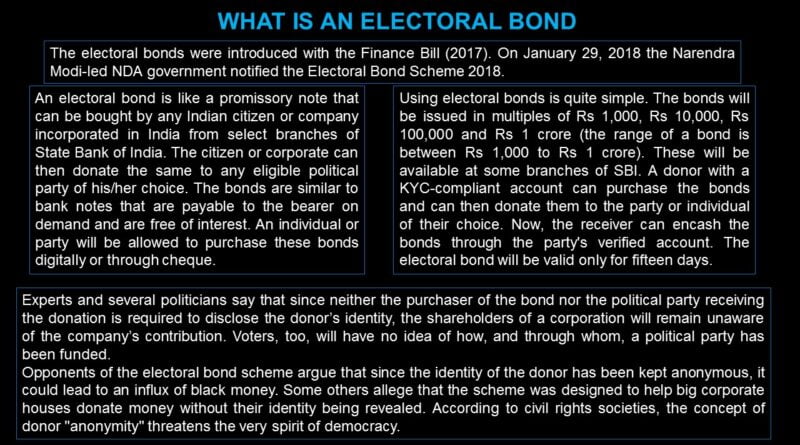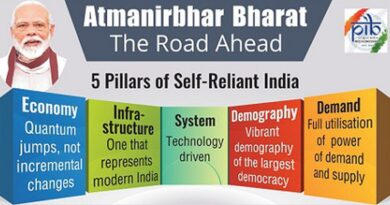Electoral bond scheme
Context:
The Supreme Court has reserved its order on putting stay on electoral bonds scheme before assembly elections in Assam, West Bengal, Tamil Nadu, Kerala and Puducherry.
Background
Various petitioners had challenged the electoral bonds scheme on its inability to provide transparency in election funding process.
Details
- Electoral bonds are bearer instruments that are used to donate money to political parties. They are interest free instruments and are completely anonymous.
- The name of the payee is not written on the bond and the receiving political party is considered as its owner.
- The bonds are sold in multiples of Rs 1,000, Rs 10,000, Rs 1 lakh, Rs 10 lakh, and Rs 1 crore in selected branches of State Bank of India during certain time of the year.
- Individuals can purchase the bonds from the banks and donated to the political party. The party has to encash the bonds within 15 days of issuing.
- No limit is imposed on the number of bonds purchased by an individual. If a party fails to cash the bonds within the stipulated time, the amount is credited to the Prime Minister’s Relief Fund.
- Individual citizens of India, companies registered in India, NGOs, religious trusts etc can also donate using the electoral bonds.
Concerns
- Anonymity provided to the donors of electoral bonds has been a major source of concern among critics.
- There have also been concerns that foreign players are using electoral bonds to fund political parties for favouring them.
- It allows even the shell companies to donate to political parties. This is considered a form of bribe by citizen groups.
- The government of the day has powers to examine the donor list by obtaining it from SBI. This can be used to intimidate rival party funders.
Election commission’s stand
The Election Commission had objected to changes in Representation of the People (RP) Act that allowed political parties from disclosing donations received through electoral bonds.
Discover more from Simplified UPSC
Subscribe to get the latest posts sent to your email.



